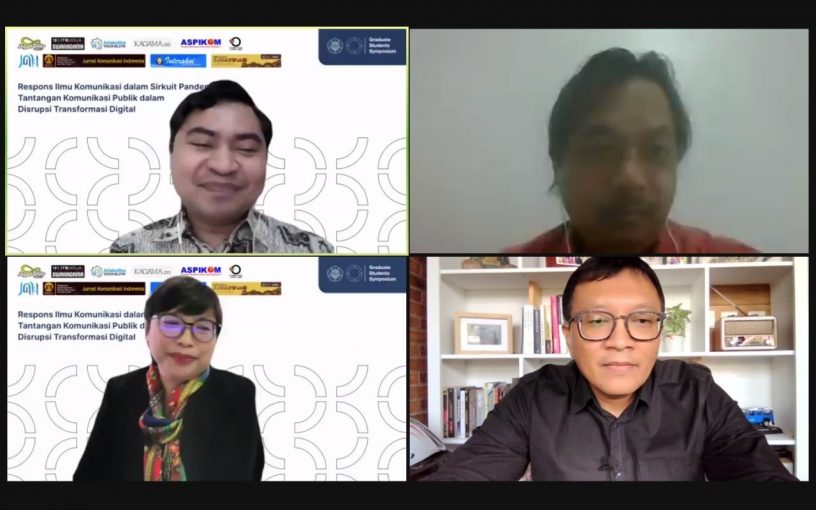
Prof. Dr. Phil Hermin Indah Wahyuni, S.IP., M.Sc. as the Keynote Speaker conveyed three main ideas about the role of communication in responding to the pandemic. First, the idea that communication is upstream and downstream of the problem. Second, the entropy paradox of public communication systems in the new media era. Third, the scientific challenge to respond to the complexity of the pandemic problem is a moment of contribution to the development of a better society. “This means that as a communication scientist, we must continue to be creative in developing research that offers a new perspective following trends and developments in the empirical world which is extremely dynamic,” Hermin said.
The panel discussion also discussed the development of studies and the contribution of communication science in responding to the public communication crisis. This was conveyed by Dr. Eriyanto, from the University of Indonesia who explained about the pandemic and trends in digital research methods. “This can be seen from the socio-cultural conditions of the community that are currently facing a pandemic and digitalization in various aspects, including in the world of academic research. Now that the online world has similarities with the offline world, digital methods are very relevant to various data: both native digital and digitized data,” he explained.
Public communication which is often assumed in terms of government and politics, now also has the context of public communication in the business world. This was conveyed by Dr. G. Arum Yudarwati from Atma Jaya University Yogyakarta that now many companies or organizations need to pay attention to public communication. Finally, Janoe Arijanto from Dentsu One Indonesia explained how the changing media landscape and the challenges of public communication from a professional perspective show that Crowd Culture and Crowd Content are things that now have an influence on public communication.
The second day of GSSC 2021 will be held on Friday, September 10th 2021. The implementation will focus on research presentations from call for paper participants consisting of various study topics such as political communication, strategic communication, communication and media policy, media and culture, and doctoral sessions.
